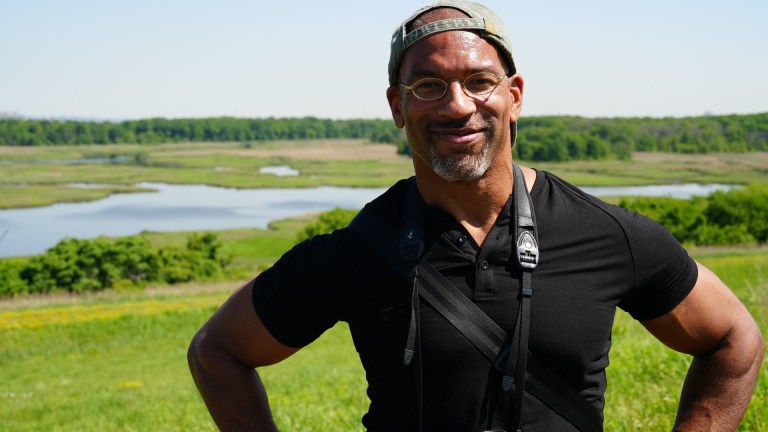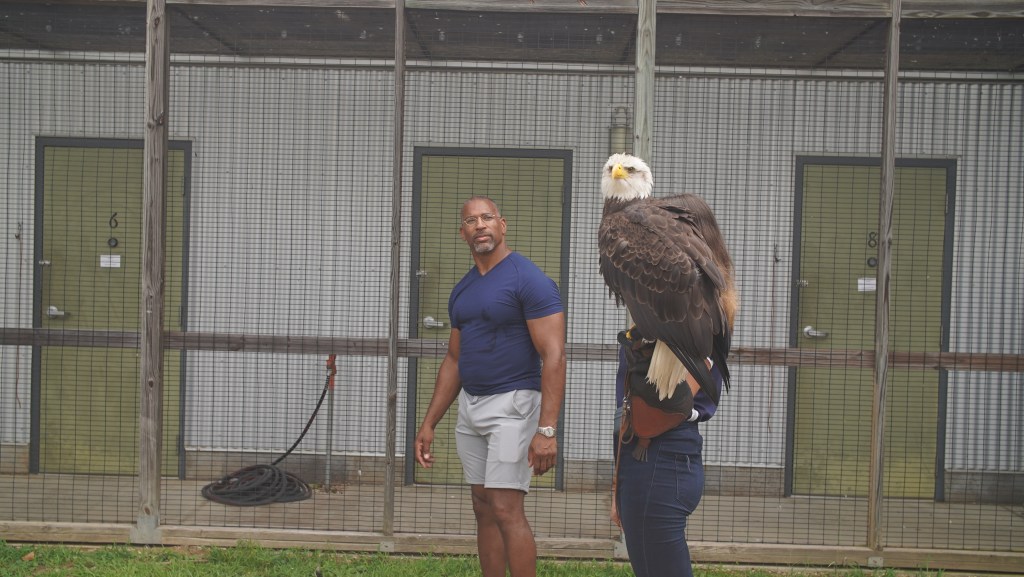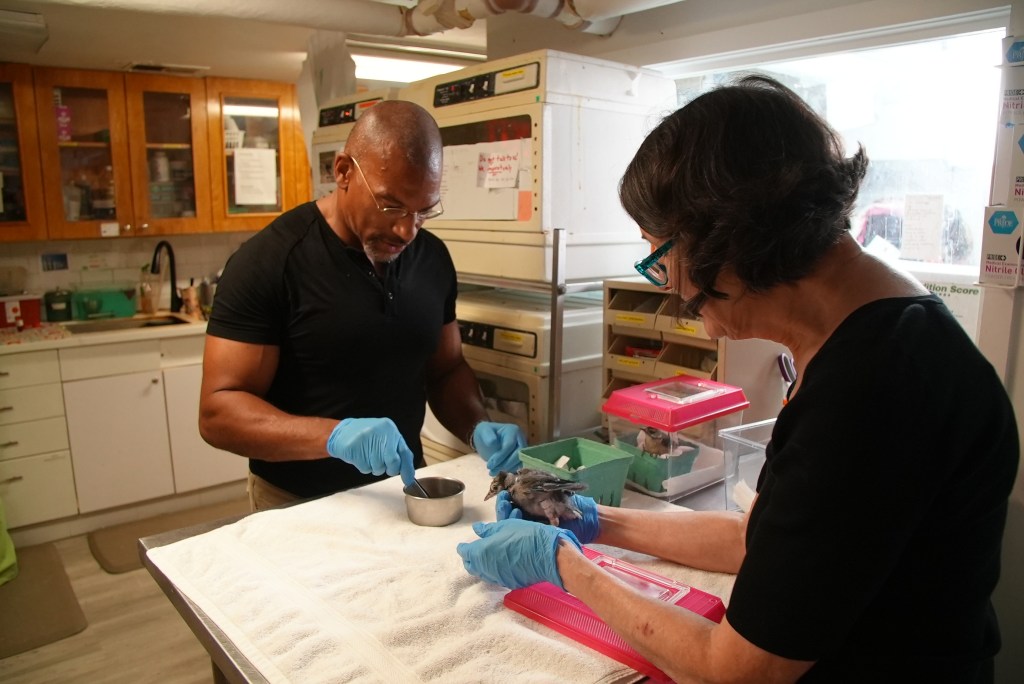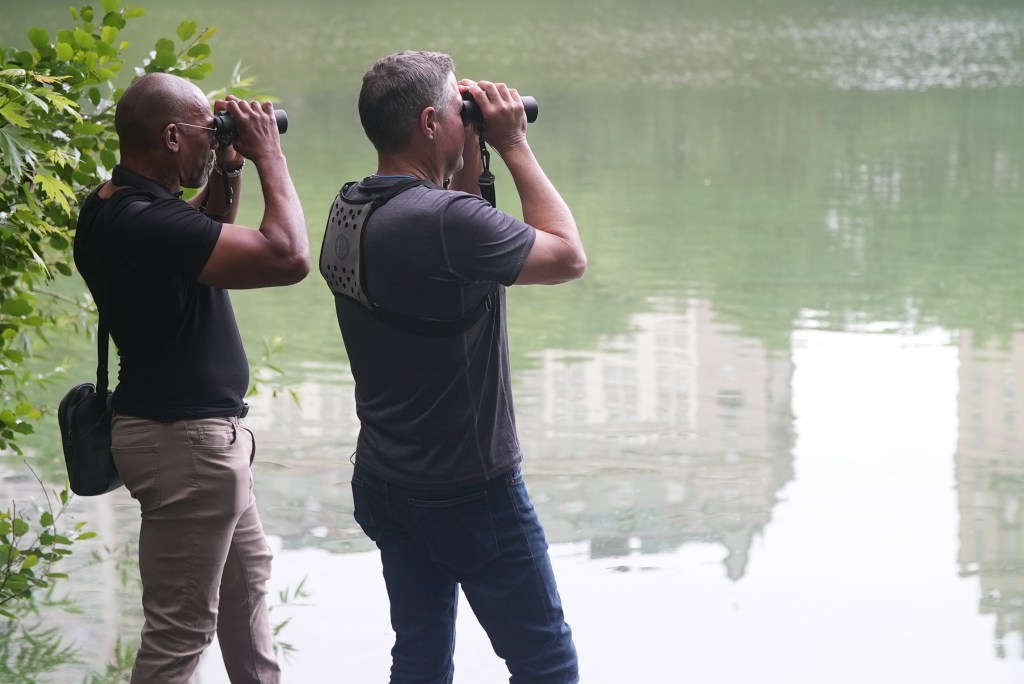Groundbreaking Marvel Editor Christian Cooper Would Now Like to Show You Some Birds
After an accomplished Marvel comics career, well-known Central Park birdwatcher Christian Cooper is ready for an unlikely second act.

The history of Marvel Comics would look a lot different without Christian Cooper.
Then credited as “Chris Cooper,” the New York-based comics nerd and Marvel die-hard was the company’s first openly gay writer and editor. In the 1990s, Cooper worked on Marvel fare that included characters like Ghost Rider, Werewolf by Night, and Vengeance. He also created Victoria Montesi, Marvel’s first openly lesbian character, and was an associate editor for Alpha Flight #106: the issue in which Northstar came out of the closet.
While comics were his first love, they were never his only love. Cooper is also an avid birder who likes to frequent Central Park, binoculars in hand, looking for warblers, sparrows, doves, and the like. It’s because of that particular interest that the recent history of the United States itself would look a lot different without Christian Cooper as well.
On May 25, 2020 (the same day George Floyd was murdered), Cooper was the victim of racial intimidation in an event that Wikipedia has euphemistically dubbed the “Central Park birdwatching incident.” That day Cooper was birding The Ramble in Central Park, as he often does, when he came across a woman named Amy Cooper (no relation) and her dog, which was not on a leash in violation of The Ramble rules. After allegedly refusing Christian’s request to leash her dog, Amy called 9-1-1 and told dispatch “There is an African American man—I am in Central Park—he is recording me and threatening myself and my dog. Please, send the cops immediately!” Christian recorded the incident on his phone, which went viral. Amy Cooper was ultimately charged with filing a false report, though the charges were dropped after she completed an educational course.
Under most circumstances, being a groundbreaking figure in a cultural powerhouse like Marvel would be the first line item on one’s life story. But being Black in America sometimes means you enter the American historical canon of racial injustice when you least expect it. Still, if there ever was a case in making lemonade out of lemons, Cooper is about to do so.
Last year, National Geographic announced that Cooper would be hosting his own birdwatching TV series. Now, Extraordinary Birder with Christian Cooper is set to premiere the first of its six episodes on Saturday, June 17 at 10 p.m. on Nat Geo WILD.
Since Den of Geek feels quite strongly about Marvel comics and I personally feel quite strongly about the ethereal majesty of birds, we sat down with Cooper to discuss Marvel, the Central Park incident, and nature’s perfect flying doofuses.

Den of Geek: You open each episode of Extraordinary Birder with the story of how your father put binoculars in your hand at age 10 and you’ve been interested in birds ever since. Can you tell me a little more about that?
Christian Cooper: My dad was a biology teacher his whole life. He was always fascinated with nature and that’s what he bequeathed to me and my sister from a very early age. For me, [that fascination] took the form of birds. Why that happened is anyone’s guess. More than likely it’s because I built a birdfeeder when I was a kid. They put me in a woodshop class (God knows why because to this day tools and I have no working relationship). But I had to build a birdfeeder or a footstool and thank God I picked the birdfeeder! I put it up in the backyard and I kept wondering what these crows that had red on their wings were. I quickly found out they’re actually Red-winged blackbirds and they remain one of my favorites.
Not long after that we took a cross-country camping trip. Me, my sister, my dad, my mom, and the family cocker spaniel all bundled into one of those Volkswagen vans – those Westfalia campers with the pop-up tops. That’s what we were in for the whole summer. We went across the country. It was a lot of driving – lots of time with nothing but cornfields out the window. We couldn’t bring much so one of the few things we brought along was the Peterson Field Guide to Birds. Time to kill, not much to do, I flipped through the book. I had an impressionable young mind and by the time we reached the West Coast I’d be like “oh look, mom and dad! There goes a Black-billed magpie.” They were like “how the hell does he know that?”
I feel like birds are a good introduction to nature because birds are literally everywhere.
No, you are absolutely right. It doesn’t matter if you are on the ocean, in the city, on a farm, in the woods – it doesn’t matter what part of the globe – there are birds. They are the group of creatures with the single greatest mobility on the planet. There’s no part of the globe that isn’t touched by the atmosphere. Some places have land, some places have water, but it all has air. And there are even birds that go under the water, like penguins, gannets, and alcids.

Also, birds communicate through the same means that we do. Common pets like dogs and cats are mainly about their nose but we human beings are primarily about sight and sound. That’s what (birds) are about too. They come in all these incredible colors and patterns which we can appreciate the same way they do. And the songbirds give us incredible music.
The first season of Extraordinary Birder features episodes primarily in North America and some American islands. Was that an attempt to expose American audiences to the natural world in their own backyards?
They’re all domestic, yes: New York, Palm Springs, Washington, D.C., Alabama, Puerto Rico, and Hawaii. That was for COVID and budget reasons. But “domestic” includes Puerto Rico and Hawaii, which is why you can’t even say just North America because Hawaii is a completely different faunal region.
But it’s true that so many people don’t know what’s going on right above their heads. Perfect example: I live in the middle of Manhattan in a very urban setting. I remember one day going up to my roof and there’s a red-tailed hawk sitting two roofs over. That red-tailed hawk was getting buzzed by a pair of American kestrels. It was like tag team wrestling. Suddenly the kestrels stopped and I hear “cack cack cack cack cack cack cack” like a machine gun almost. This peregrine falcon comes swooping in and he starts dive bombing the red-tailed hawk! Meanwhile the kestrels now are just sitting on a telephone pole like “we’re not getting involved in this.” This raptor war was going on here in the middle of Manhattan and people don’t know it.

In the “New York” episode, you and guest Jeff Corwin briefly address the Central Park Birdwatching Incident. Did you feel it was important to include that acknowledgement? Was there ever discussion about how to approach it?
It would almost be more prominent by omission. There we were in Central Park, birding the Ramble. In fact, we walked by the exact spot where the whole thing happened. What’s interesting about that is that I don’t think of that spot that way at all. There are so many other memories of great birding experiences – great birds I’ve seen right there. There’s a bird called the mourning warbler that’s really hard to find. It comes late in the spring migration and everybody is always looking for it. And one year, right at that spot, a mourning warbler spent a whole week out in the open for everybody to see. [Birders] all were gathered in these huge mobs watching this mourning warbler put on a show. That’s what I remember that spot for. That and a whole bunch of other things. So you mention it and you move on.
As someone who’s had a very prominent role in Marvel history, what is it like to watch Marvel become a global mainstream phenomenon through the MCU?
It’s sort of the triumph of geek culture. Other people have written about it more extensively and better than I ever could. The only thing I could add though is that I think it reflects how, in our Western culture, there is a hunger, a starvation for myth. Myth-making is something we humans have done throughout our history. It is integral to our need for story. In Western culture, myth has largely atrophied. We have the remnants, the echoes of Greek myth. But in terms of modern myth making, it just doesn’t really happen much.
Comics is that last space where we create larger-than-life characters who embody larger-than-life forces and who act out our concerns as a society in this externalized way. [Comic characters’] stories are told by multiple storytellers who hand off from one to the next the way old storytellers did with myth. Really, superhero comics are the last bastion of myths in our culture. The success of Marvel now is an indication of just how much we’ve longed for that kind of storytelling.
How would you feel about getting to see a Marvel character you created like Victoria Montesi in the MCU? The Darkhold is fully a part of the universe now.
I would love to see Vicki Motesi get her due. We actually did see Louise Hastings, who is one of the other three main characters from the Darkhold comic, show up in Helstrom (on Hulu). That was fun for me to see her there and if Vicki Montessi showed up somewhere, that would be even more fun. Every time you see one of your creations take on a life of its own and other people run with it, that’s a validation from other creators you always appreciate.
It happened when I was writing Star Trek: Starfleet Academy. One of the characters I created for that went on to have a life in a bunch of Star Trek novels. When the plug got pulled on the comic because Marvel lost the Star Trek license I thought “that’s the end of those characters,” but actually: no it wasn’t! One of the characters went on to do all sorts of things. That was our Amazon-like Andorran woman who was one of the cadet members. She went on to have a long life.
Favorite bird? Favorite Marvel character?
We’ll start with favorite Marvel character. It’s Storm. Without a doubt. I fell in love with Storm, I think it’s X-Men #113 [Ed. Note: It is]. Magneto has defeated all the X-Men and he’s trapped them in these chairs that reduce their functioning to six-month-old infants. This is an incredibly convoluted revenge scheme because last time they fought, Magneto got regressed to an infant so now he’s done the same thing to the X-Men. Even though they have their minds and powers they can’t use any of them. Storm, and I can almost quote you the Claremont dialogue word for word, goes “Magneto made a fatal mistake with me. True, my body is forced to function at the level of a six-month-old infant but at six months I had the coordination of a young girl!” She throws her headdress into her lap, gets the lock pick out of her headdress with her tongue and teeth, and picks the lock to get herself and all her fellow X-Men out. I was like “Storm forever!”
Favorite bird? It would probably be the blackburnian warbler. Warblers are these really small, really active birds. I like to refer to them as “butterflies with personality.”They come in this incredible array of colors and patterns and they’re always flitting around. The blackburnian warbler is kind of black and gray. It has this fiery DayGlo orange throat. In a good male it’s like looking at a black light poster. It’s just amazing.
Extraordinary Birder with Christian Cooper premieres Saturday, June 17 at 10 p.m. ET on Nat Geo WILD.
